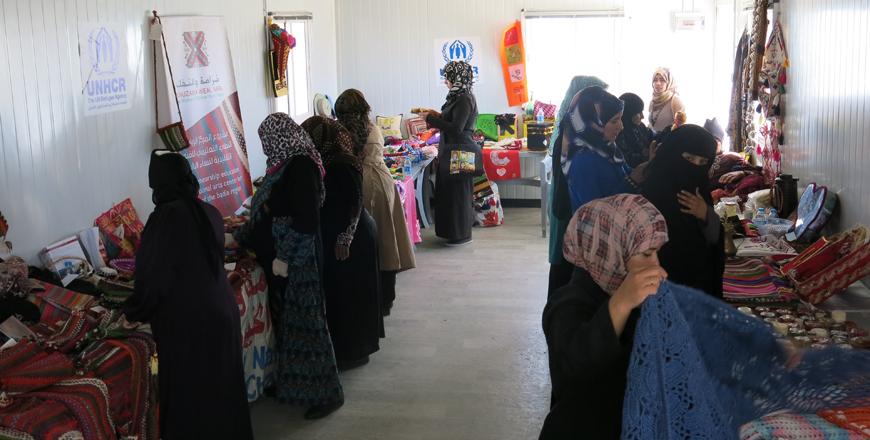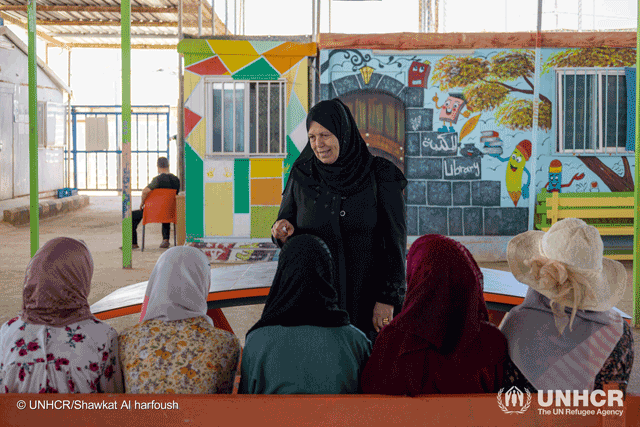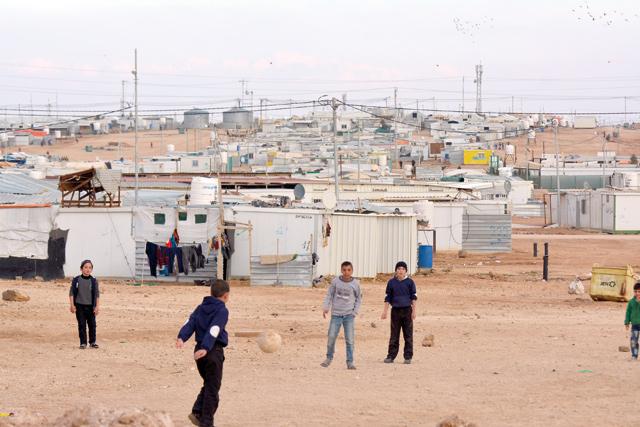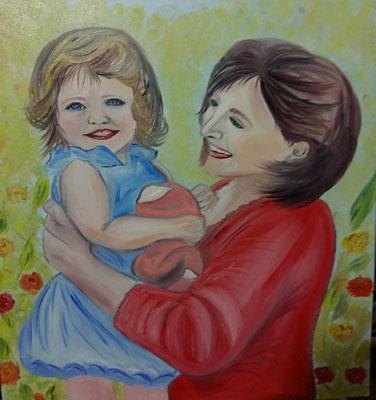You are here
‘We will overcome the difficulties’
Jun 18,2015 - Last updated at Jun 18,2015

Jordanian and Syrian women organise a bazaar to sell handicrafts at the Zaatari Refugee Camp, some 90km northeast of Amman, last year (File photo)
Ghada is a Syrian refugee in her 40s who fled with her family to Jordan after their home in Daraa was destroyed in a bombing.
She is well-known among the Zaatari camp residents for her kindness and eagerness to help others.
Ghada studied handicrafts at a local college before working as a teacher, and later as an administrative officer at the Women’s Association in the suburbs of Damascus.
Her work with the association took her to Daraa where she dedicated 17 years of her life to helping women in Syria.
Her supervisory role included a variety of cultural activities and health awareness programmes such as family planning campaigns, illiteracy and child care.
Ghada recalls how coming to Jordan had a profound effect on her.
“When we came to Jordan, I became severely depressed. The conditions at the Zaatari camp were hard and I felt helpless. I was unable to help myself or those around me. I used to have this enormous ability to help and to give, and suddenly I didn’t know how to anymore,” she says.
“I stayed like that for nearly 10 months, until finally I was given the chance to do some voluntary work with one of the organisations in the camp. I took part in awareness programmes, and extracurricular activities for women and children, and started training young women on handicrafts.”
“I’m not trying to make money through these programmes All I want is to help my family and my people. There are still several obstacles that I need to overcome, but if we all work together then, step-by-step, we will overcome our difficulties. If I was given the option to live outside the camp, I would refuse,” she adds.
In addition to her daytime voluntary work, Ghada gives home lessons to students.
“One of the most painful things I’ve ever had to witness is the sight of children scrambling for food parcels or cartons of juice,” she says.
“By contrast, one of the happiest experiences I’ve ever experienced is teaching those children to read and write. Some of them were illiterate and, after only two months, they had made significant progress. Hearing the word ‘thank you’ from children and their parents is so special. Children give me happiness and sadness at the same time, and I now live to teach them and help them find a better future.”
This article was contributed by UNHCR, one of the humanitarian agencies participating in the 'Standing Together' campaign in an expression of solidarity between refugee and host community. UNHCR, the UN Refugee Agency, is leading the campaign on the occasion of World Refugee Day, 20 June.
Related Articles
AMMAN — In Zaatari refugee camp, two Syrian women, Shokreh Al Masalmeh and Ghada Al Qablawiare, have emerged as vigorous advocates against c
AMMAN — A caravan of approximately 12 square metres is what Shawkat, his wife and his three children have been calling home for the past eig
ZAATARI, Mafraq — Determined to change the image of her fellow Syrians in the Zaatari Refugee Camp as “uneducated and unskilled”, one woman



















